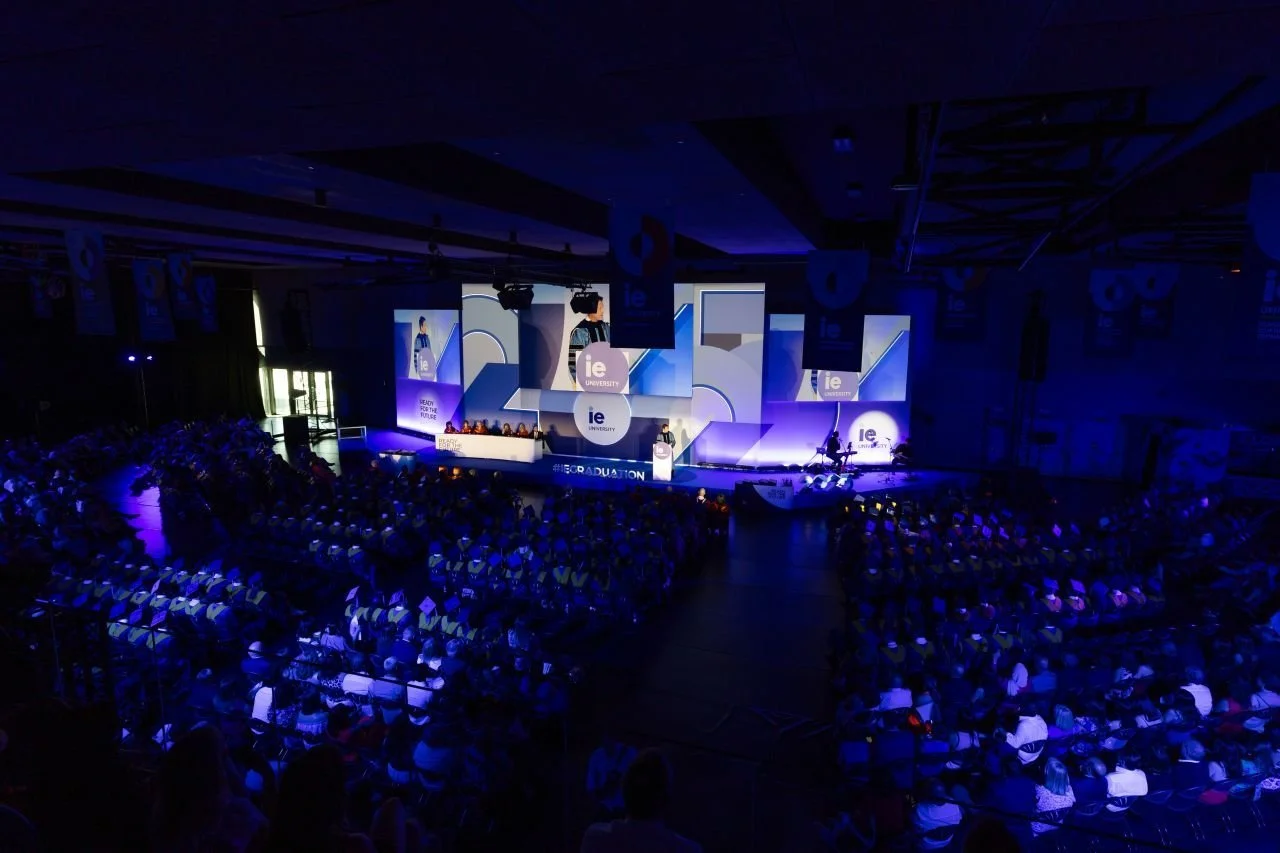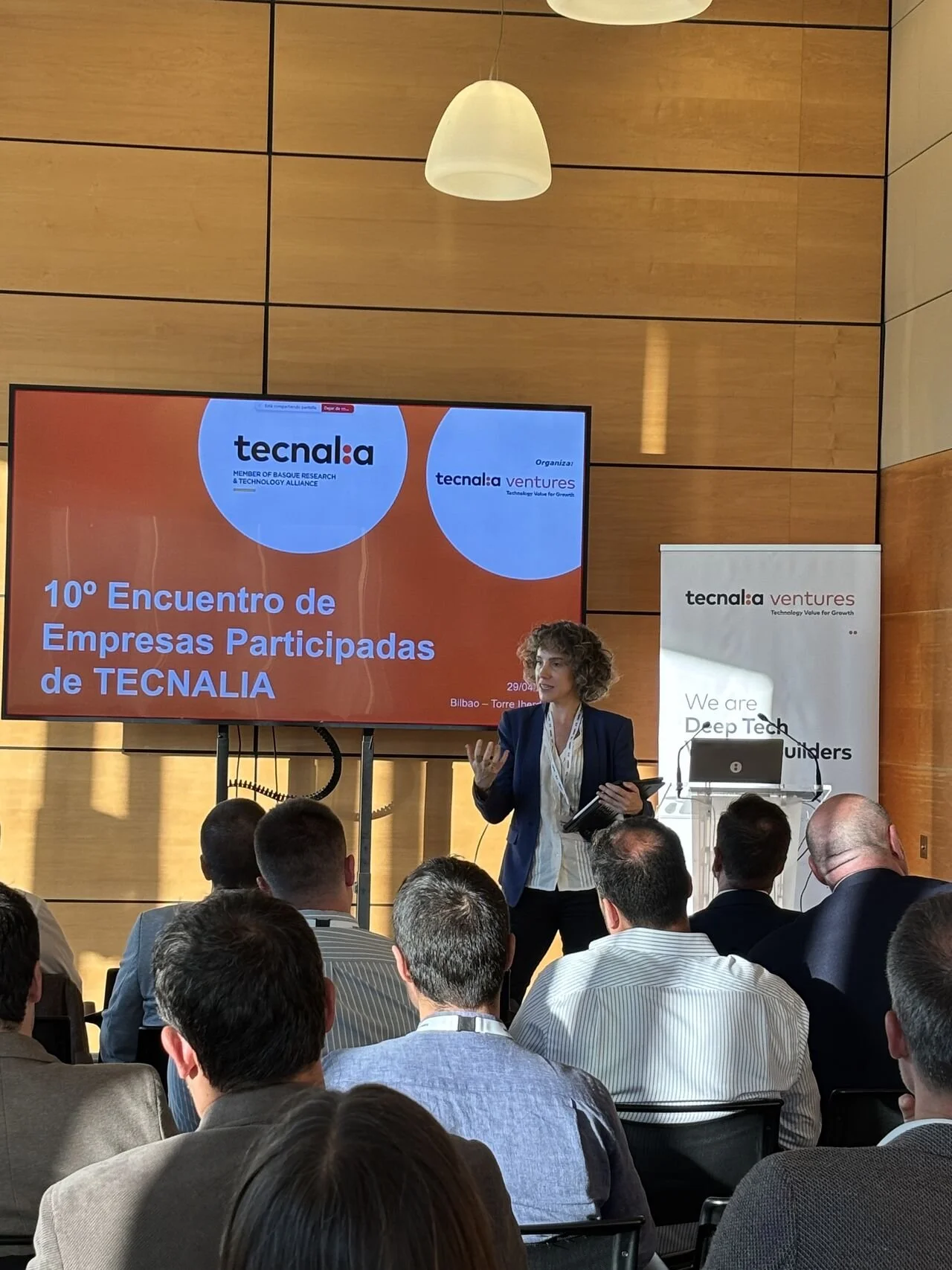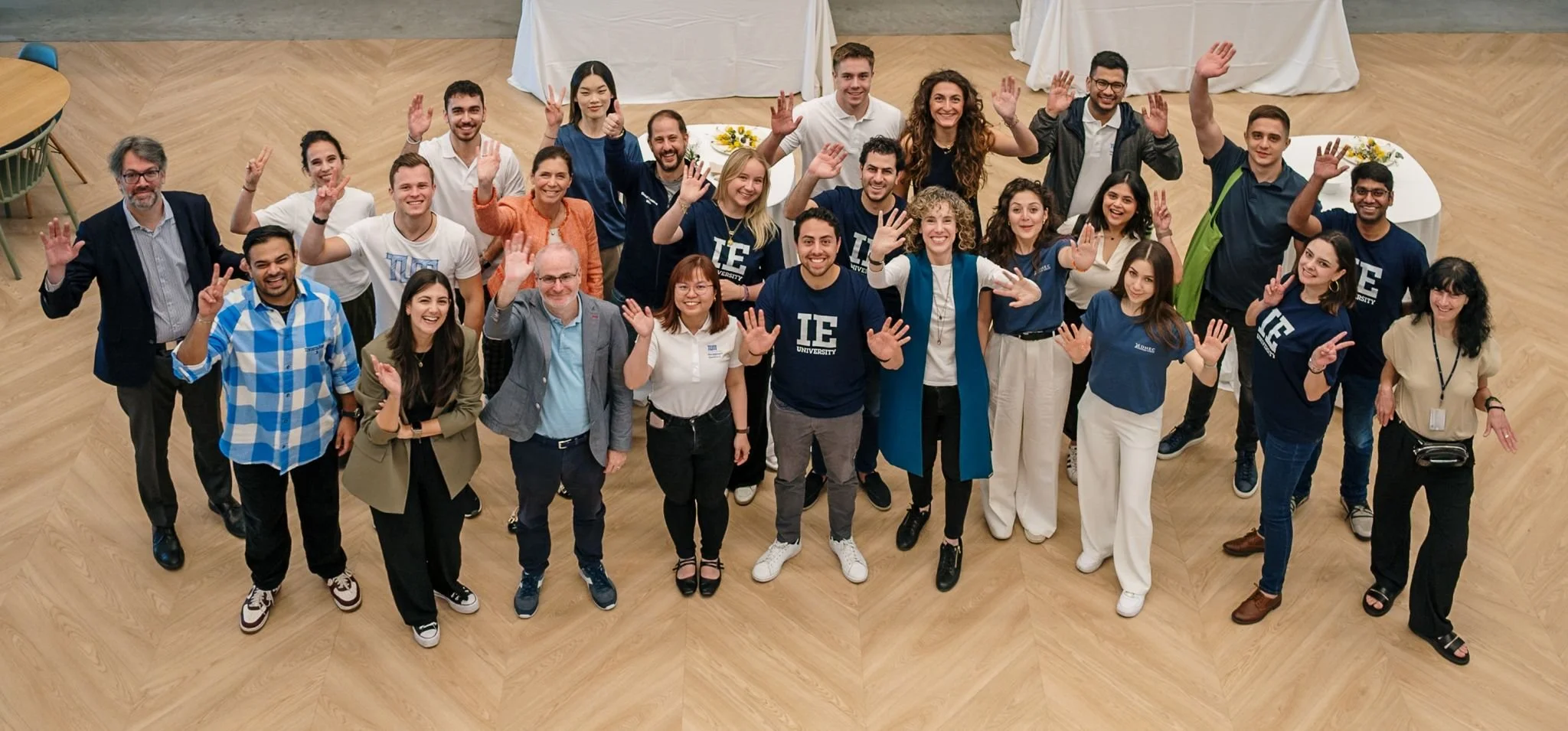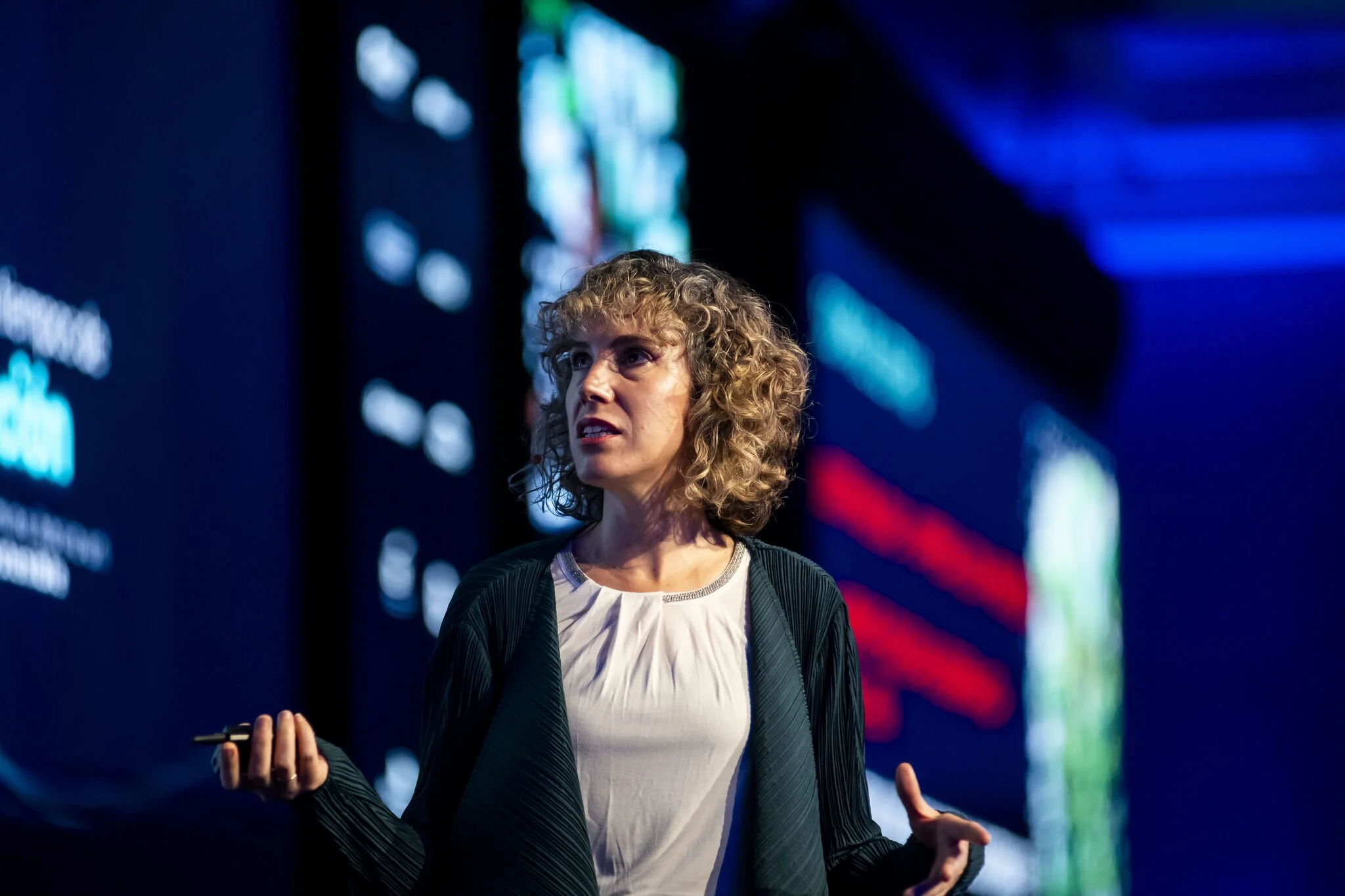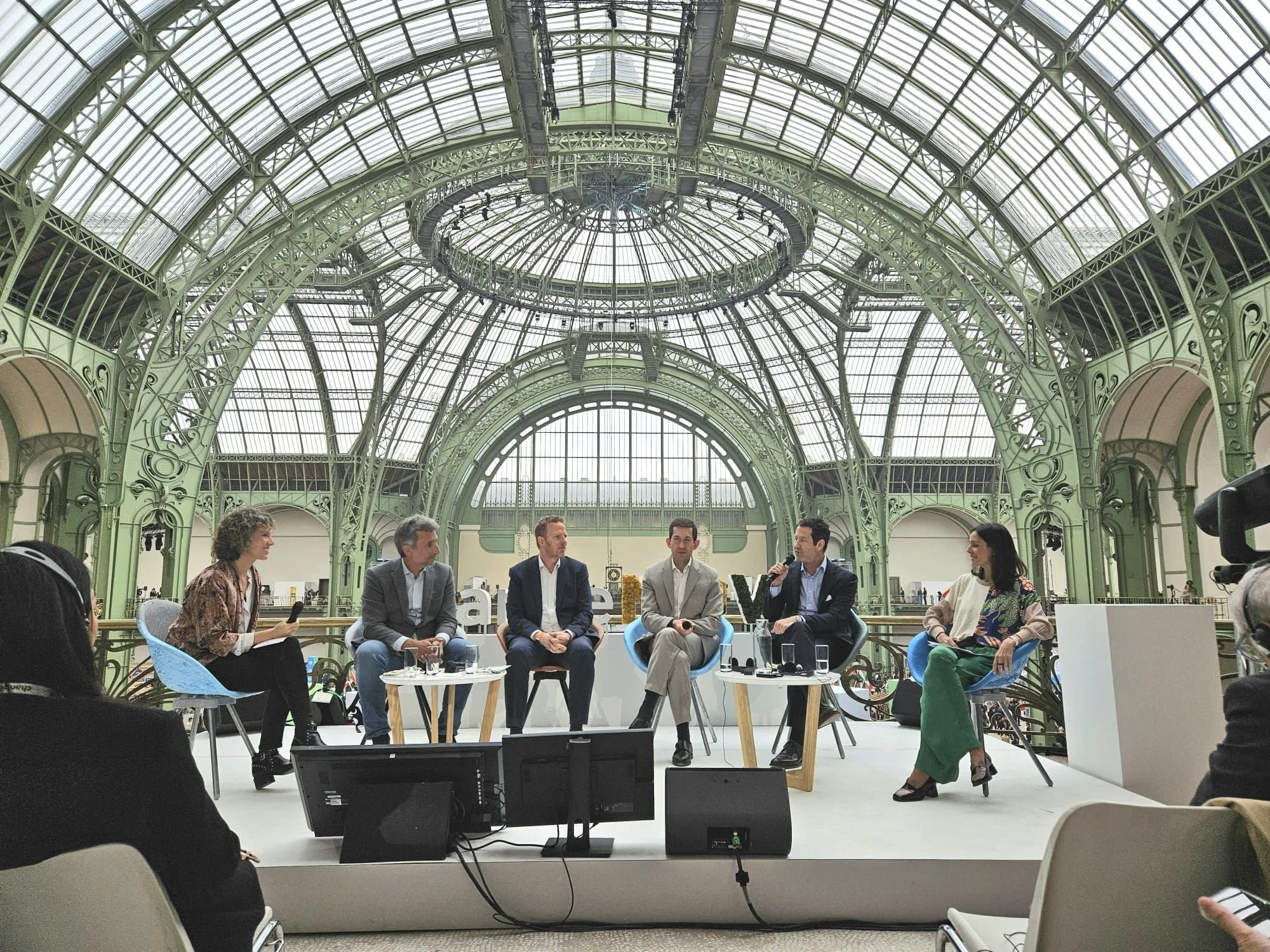From Literacy to Leadership: Concepción Galdón on Building Real Sustainability Capacity
23 Jul, 2025
This article is part of a series where we speak with sustainability and business experts to share insights from multiple perspectives. Opinions expressed are not necessarily our own, but we aim to foster debate and collaboration by showcasing the work of those leading exciting projects.
Concepción Galdon PhD.
Why all professionals, not just experts, needs to speak the language of sustainability, and how business schools and companies can rise to the challenge.
Concepción Galdón is not in the business of creating sustainability "experts." At least not only. As Vice Dean of Purpose at IE Business School and Director of its Center for Social Innovation and Sustainability, her mission is broader: making sure sustainability becomes part of the language of business itself—something every team, leader, and decision-maker is fluent in.
In this conversation, she unpacks what real sustainability capacity looks like inside organizations, why education is still one of the most powerful levers for change, and how we need to move beyond awareness to structural execution.
Sustainability Is a Literacy Issue First
"Sustainability is not a vertical; it's the system we operate in," Galdón says. "It's how your company fits into the social, environmental, and economic fabric of the world."
She draws a parallel with digital skills. You don't need to be an IT expert to use email. But if you can't even open your inbox, you're no longer fit to operate in today's business world. "It's the same with sustainability," she explains. "You can't say, 'I'm not in the sustainability office'; if you're illiterate in the issues, you're kind of useless."
At IE, this means training on two levels: ensuring all students have the transversal understanding to navigate complexity, and also building deep, specialized capabilities for those who want to lead the charge. Both are essential, because experts are limited if they can't collaborate with anyone.
From Compliance to Strategy: What Companies Are Still Getting Wrong
In her work with executive education and company workshops, Galdón sees a consistent challenge: many organizations still treat sustainability as a cost or a compliance function, rather than a driver of innovation and growth.
"The big miss is keeping sustainability confined to compliance," she says. "Placing it under finance can be a solid step forward, and in some advanced companies it works well. But to truly unlock its potential, it also needs to be transversal to strategy and innovation—because that's where the real business model shifts happen."
She's quick to point out that today's shift is a practical one. The data has changed, and the opportunities have expanded. Waste streams are now revenue sources. Byproducts can become high-value inputs. "You're leaving money on the table if you don't explore this," she adds.
Real Examples, Real Business Models
One example Galdón often shares with students is the rise of Refibra in the textile industry, a way to upcycle industrial fabric waste into new, high-end material. "If you're paying for textile and throwing the leftovers in the bin, you're literally throwing away value you paid for," she says. "Now, those scraps can be sold into a new value chain."
The same is happening in sectors like cosmetics (using beer byproducts) and building materials (with innovations like biochar and green cement). But Galdón cautions that not all circularity models are created equal. "The goal isn't to turn Coke cans into low-quality earrings (for example). It's to increase, not reduce, the value of what was once waste."
The pattern she sees in the most compelling examples? Healthy margins, volume potential, and true integration into the business model.
What Holds Companies Back, and What They Can Actually Do
When asked what companies should do if they're serious about transformation, Galdón rejects simplistic ideas like "three steps to sustainability" or "10 things that can make your company more sustainable." But she does offer a framework:
Acknowledge the complexity: Sustainability isn't a communications campaign. It's technical, systemic, and demanding.
Get the knowledge: That might mean training internally, or bringing in the right experts, but surface-level won't cut it.
Tailor the approach: Your sustainability strategy must match your business model, market, and operating context. "It's not about buying a glossy presentation," she says. "What matters is ensuring the approach is genuinely tailored to your company—designed from the core so it can actually be implemented."
She also names common barriers: cultural perceptions, internal knowledge gaps, and a lack of shared responsibility. "Sustainability cannot live in a silo. Everyone in the company needs to see it as part of their job, just like not going bankrupt is."
For Future Professionals: Skills (and Skin) You’ll Need
For students and young professionals, Galdón is clear: this work is not for the faint of heart.
"Sustainability has moments of greater visibility, like in recent years," she says. "But at its core it is always a journey of continuous improvement at the frontier of what's technologically feasible. That means working in this space will inevitably involve change management—sometimes exciting, sometimes challenging—and professionals need the resilience to navigate both."
What's needed? Deep business fluency, a firm grasp of environmental and social context, and the ability to translate both into strategy, operations, finance, and innovation. "You must know how a business works, and then know how to embed sustainability in it," she says.
Oh, and resilience. "This is a marathon. It's about being unpopular one day and persistent the next. That's just the nature of the job."
Closing Reflection
As companies move past ambition and into action, education becomes more critical, not less. Whether training future leaders in the classroom or helping executive teams reframe their value chains, Concepción Galdón is focused on building the internal capacity to turn sustainability into implementation.
The bottom line? Sustainability isn't a trend or a tactic. It's a strategy and innovation lever, and to harness its power, companies need both the literacy and the commitment to embed it across their operations.
Net Positive Lab’s Work with Concepción Galdón
Net Positive Labs has partnered with Concepción to provide MBA students at IE Business School with a sustainable business innovation challenge. Students must apply their knowledge on innovation, strategy, and operations to identify and design feasible business models that unlock the maximum potential value of waste streams within specific production ecosystems.



